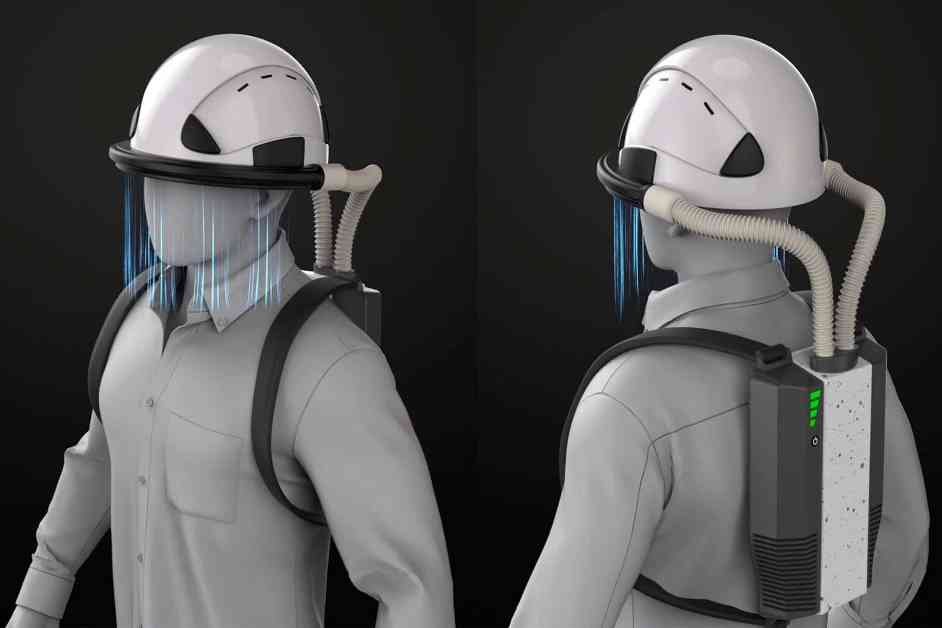Industrial workers are at risk of developing respiratory diseases due to exposure to airborne pathogens. Traditional masks and protective gear do not offer complete protection. However, a startup called Taza Aya, backed by the University of Michigan, has developed an innovative solution – an invisible air curtain that acts as a face mask, providing 99.8% protection against airborne germs.
The air curtain technology works by creating an invisible barrier of air around the user’s face, preventing the entry of pathogens into the breathing zone. The device consists of a helmet connected to a lightweight backpack containing air filtration units. Special non-thermal plasma modules in the backpack purify the ambient air, which is then directed to the helmet through tubes. The purified air is released through nozzles in the front of the helmet, creating a protective air curtain.
Unlike traditional masks, the invisible mask from Taza Aya does not fog up goggles, allowing workers to perform their tasks without hindrance. It also enables better communication in noisy environments and ensures continuous air filtration throughout the day. This groundbreaking technology offers unprecedented levels of protection against airborne germs, as stated by Herek Clack, co-founder of Taza Aya and associate professor at UM.
The device is set to be launched in 2025, providing industrial workers with a new and effective way to safeguard their health. The rise in respiratory diseases among workers underscores the importance of such innovative solutions in ensuring workplace safety and well-being. With the introduction of the invisible air curtain, workers can now benefit from advanced protection against airborne pathogens, enhancing their overall health and productivity.






